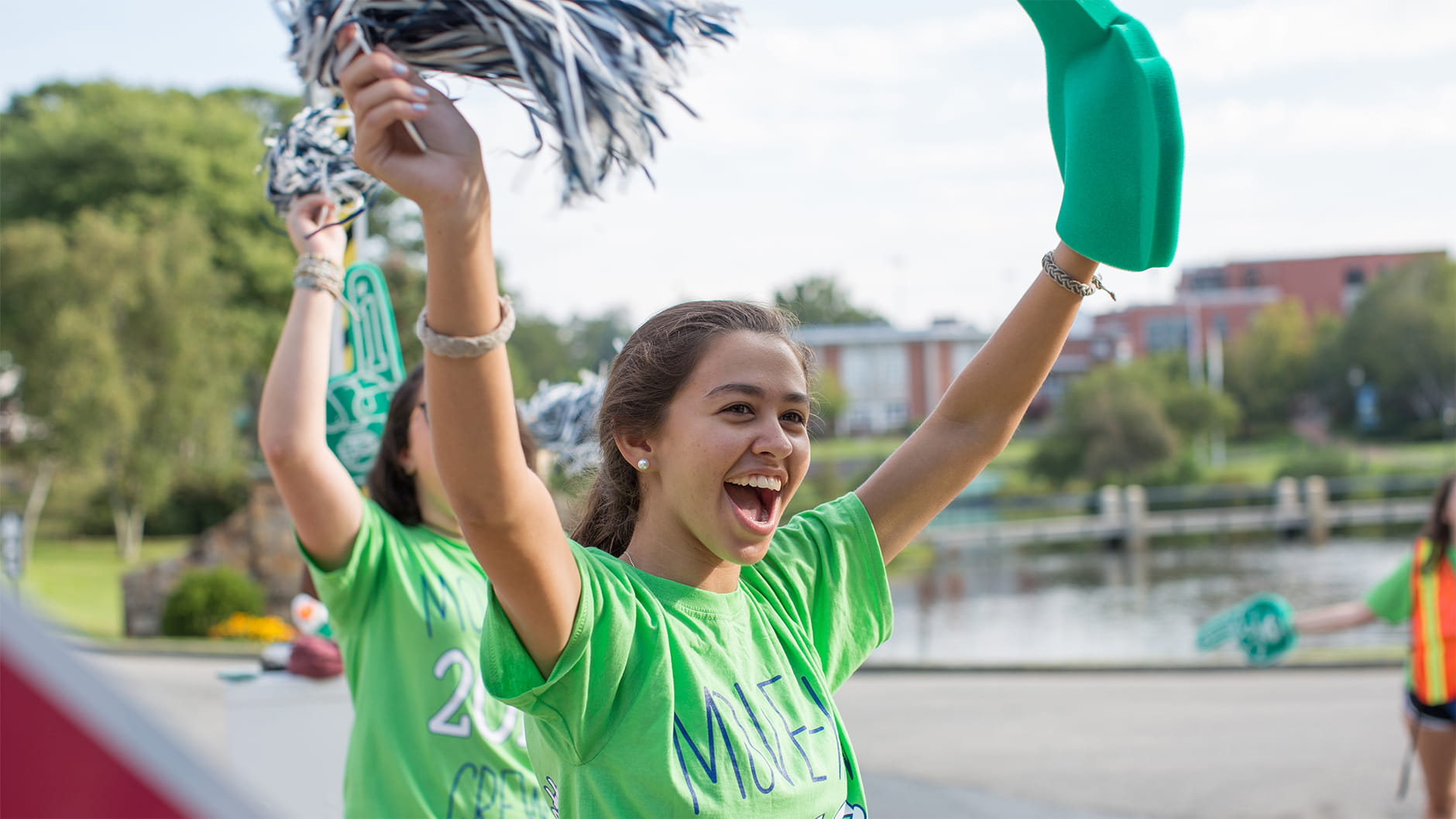Student Life
Read Time: … min
Who doesn’t love the beach? For many, the three private beaches at Endicott College might have been an added bonus that helped seal the deal for you when it came to Decision Day. The College’s campus extends along a beautiful shoreline that overlooks the Atlantic Ocean and offers a place for students to relax and enjoy recreational activities at Mingo, Endicott, and Tupper Beaches. When the weather is warm—or above freezing—students flock to soak up the rays with their fellow Gulls, just as us New Englanders do.
Because the beaches are a treasure to our community, it’s important that we do our part to keep them pristine so future generations of Gulls can enjoy them. Here are some ways you can help keep Endicott’s beaches, as well as your local beaches, clean and our shoreline beautiful.
Because the beaches are a treasure to our community, it’s important that we do our part to keep them pristine so future generations of Gulls can enjoy them. Here are some ways you can help keep Endicott’s beaches, as well as your local beaches, clean and our shoreline beautiful.
Carry out what you carried in.
The majority of pollutants that make their way into the ocean come from human activities along the coastlines and inland—meaning that we are the solution to the problem. Trash left on the beach can last in the ocean for hundreds of years and will affect the health of wildlife, people, and local economies. According to Ocean Crusaders, over 1 million seabirds and 100,000 sea mammals are killed by pollution each year. One of the easiest solutions to this problem is to take everything that you brought to the beach with you when you leave and dispose of it properly.Don’t feed the wildlife.
This is one special scenario of a Gull not looking out for another [sea]Gull. While the seagulls might want your chips, fries, or that Einstein Bros. bagel, it’s important to keep them away from even the scraps. If seagulls are used to being fed then they become a nuisance and can become aggressive with beach goers. Additionally, when seagulls are fed human food then they stop hunting for their own food which causes unnatural behavior and a poor nutritional diet.Be mindful of your sunscreen.
Make sure to wear your SPF, but educate yourself on some of the harmful ingredients to avoid for both your own safety and the ocean’s. A reef-safe sunscreen is a sunscreen free of the chemical ingredients oxybenzone, octinoxate, and octocrylene. When absorbed, these chemicals cause bleaching and can kill the coral reefs. Visit Environmental Working Group (EWG) to find what ingredients are in your sunscreen and to find a safer alternative.Avoid single-use plastics.
Say “no” to single-use plastics such as straws, plastic cutlery, water bottles, and plastic bags. Plastics are the most common form of marine debris and once in the water, plastic debris never fully biodegrade. According to the World Wildlife Fund (WWF), globally, 100,000 marine mammals die every year as a result of plastic pollution. This includes whales, dolphins, porpoises, seals, and sea lions.Participate in a beach clean up or organize your own.
Throughout the semester, the Community Service Office will be planning small beach clean ups (allowing for plenty of social distancing). If you’d like to organize your own beach clean up, grab a few friends (and your masks) and head to one of the beaches at a time that’s convenient for you. The more clean ups that happen throughout the year, the more pristine our beaches will be.If you see something, say something.
If you see someone who is not respecting the beaches, kindly remind them of the importance of protecting our shorelines. If it is one of Endicott’s beaches, then the Public Safety & Police Department can assist if you prefer to not get involved..jpg)


